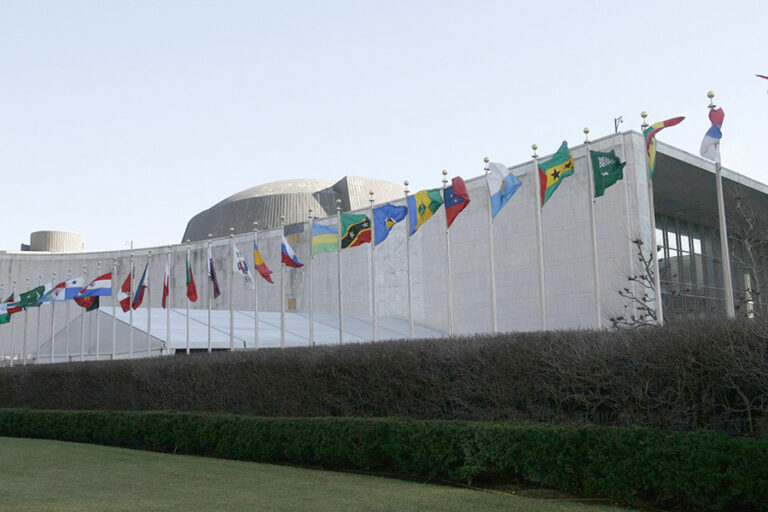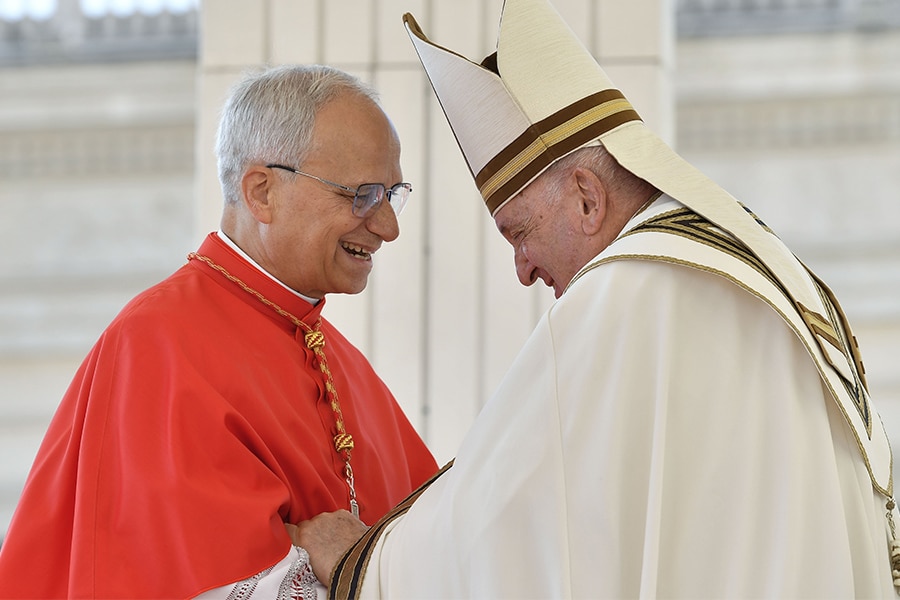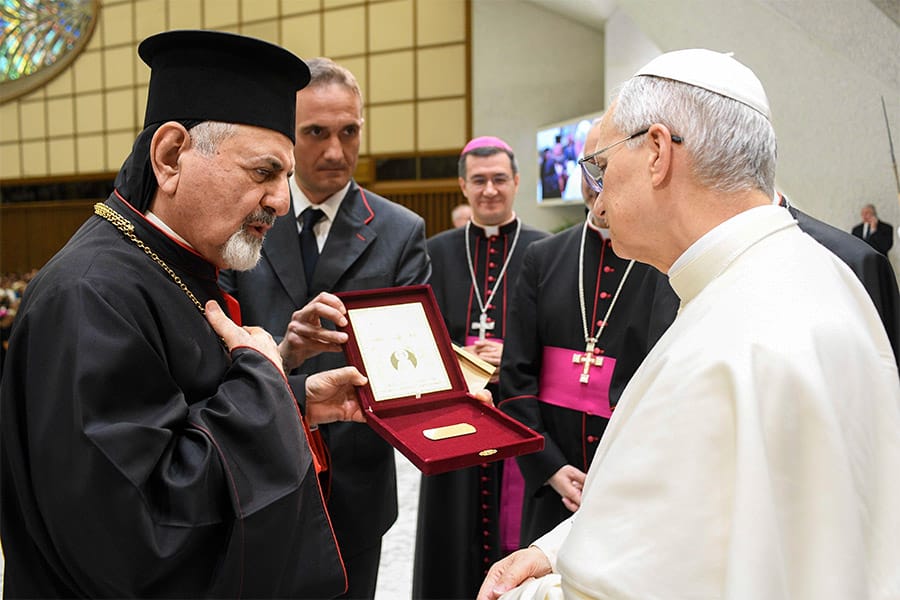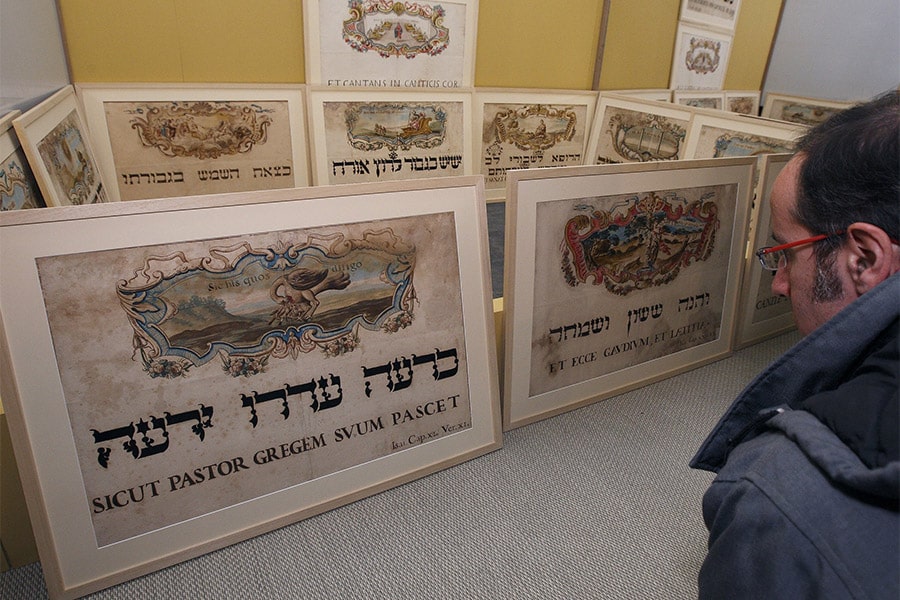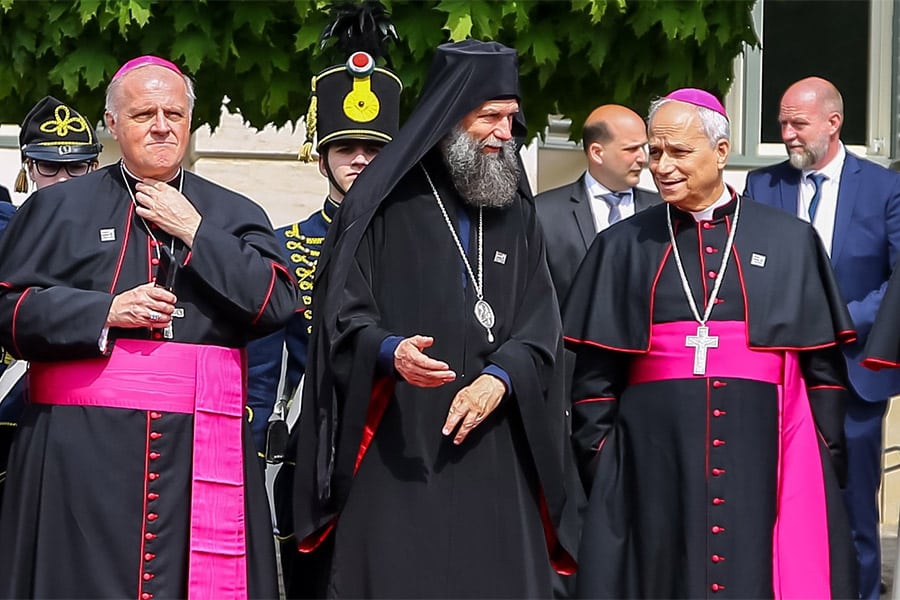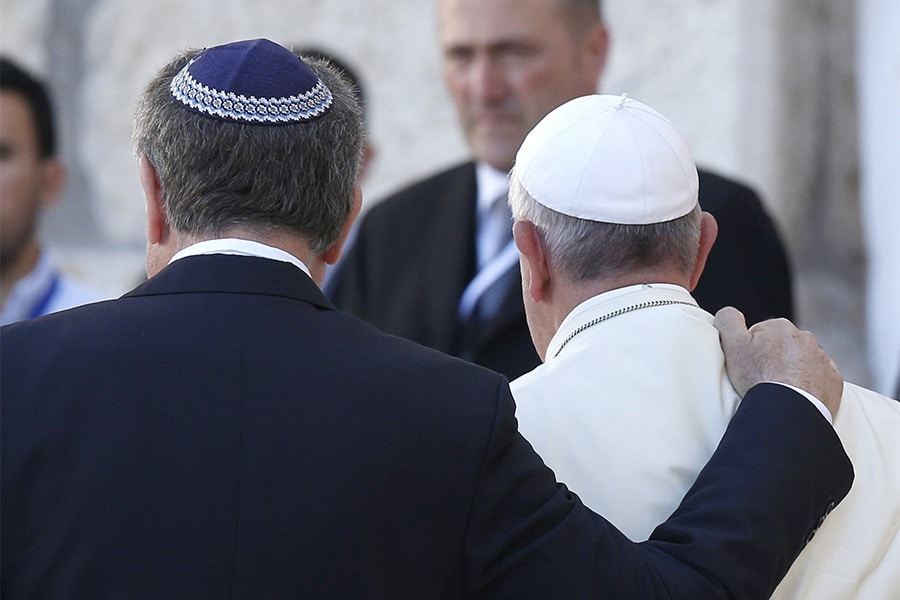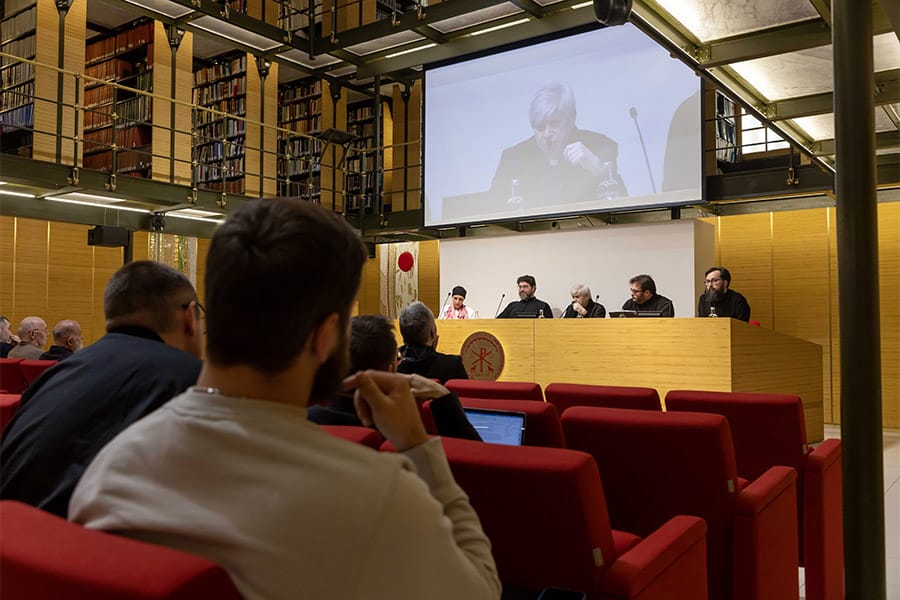UNITED NATIONS (OSV News) — A combination of U.N. ambassadors, religious leaders, diplomats, academics, representatives of nongovernmental agencies and several musicians gathered Feb. 3 in a vast conference hall at the United Nations headquarters in New York City to mark World Interfaith Harmony Week.
The special week, observed this year Feb. 1-7, is a product of a 2010 U.N. resolution, first conceived by Jordan’s King Abdullah II, known for his commitment to religious tolerance and interfaith dialogue.
The week stresses the need to advance mutual understanding and interreligious dialogue as a way to promote harmony among all people.
While there were no signs of the Jordanian kingdom at the event, a different Arab kingdom, Bahrain, showed up in the person of Ambassador Jamal Fares Alrowaiei, the country’s permanent U.N. representative.
“Bahrain is a small country, but when you go to the capital, in just one kilometer you will see the mosque, the church, the synagogue,” Alrowaiei told the U.N. gathering, showcasing his tiny, predominantly Muslim island nation in the Persian Gulf as a living example of interfaith harmony.
He said Bahrain had “built on its rich history, as a multicultural and inclusive society, to become an example in upholding and promoting the values of mutual understanding and respect, interfaith dialogue and peaceful coexistence.”
Another good illustration of Bahrain’s positive role in promoting peace among different cultures and faiths, Alrowaiei noted, was its November 2022 hosting of Pope Francis together with grand imam of Egypt’s Al-Azhar mosque.
“The visit … was an example and great message to the world about the interfaith and the dialogue,” Alrowaiei said.
Archbishop Gabriele Caccia, the Holy See’s permanent U.N. observer, addressed the U.N. conference hall next.
He too evoked Pope Francis’ trip to Bahrain, quoting the pontiff as saying, “Bahrain … where a further step forward was taken in the journey of Christian and Muslim believers.”
Pope Francis was even more recently making a “major, major contribution to reconciliation and peace” through his visits to the war-torn countries of South Sudan (Feb. 3-5) and Congo (Jan. 31-Feb. 3), Archbishop Caccia continued, and quoted the pontiff one more, as telling Vatican diplomats in January that “religion provides genuine opportunities for dialogue and encounter between different peoples and cultures.”
Still, “in a world that is witnessing heightening division and wars, the creation of a culture of peace is not an easy task,” the archbishop admitted, asking the conference participants, “From where can we start?”
In his speech, Sierra Leone’s U.N. Ambassador Fanday Turay offered some suggestions about where countries should begin.
“We encourage that we collectively embrace diversity, strengthen trust and denounce extremism,” said Turay, whose West African nation was among the sponsors of this year’s World Interfaith Harmony Week.
He called on fellow U.N. member states to “accelerate” their efforts toward producing resolutions “that speak to the culture of peace, love and conscience,” urging them to incorporate and use “faith and spiritual leaders … as the key components to building bridges” across religious and cultural divides.
The Rev. Theodora Brooks, an Episcopal minister present at the U.N. event, seemed a perfect illustration of such bridge-building by faith leaders.
“As people of faith, we are to follow the example of Jesus, and create a more bountiful and harmonious world by ending discrimination based on religion, gender, ethnicity, marital status, physical ability, and any label or tool that is easily used to exclude others,” she said in her address to the U.N. conference hall.
“We do so by respecting the dignity of every human being, and by daring to have conversations that make others feel safe, seen and heard,” said Rev. Brooks, who hailed from St. Margaret’s Episcopal Church in the Bronx, a borough of New York City.
Another New York faith leader invited to speak at the U.N. event was Rabbi Joseph Potasnik, executive vice president of the New York Board of Rabbis.
“We all need each other to open doors for one another,” he told the conference hall, describing various incidents in the U.S. and around the world in which Jews, Muslims and Christians had joined ranks in defense of each other, or sought shelter in each other’s houses of worship.
“After 9/11, when people were seeking refuge running away from that horror, where did they run to? They ran to houses of worship, in the downtown area … and they all felt comfortable in the house of worship, even if it wasn’t of their own denomination,” Rabbi Potasnik said.
But there was still “much to do together” toward eliminating the world’s religious and multiple other divides, the rabbi reminded those present.
“We can’t allow harmony week to be just one week. It has to continue throughout the year and throughout our lives,” he said.
James Martone writes for OSV News from New York.
Read More Ecumenism & Interfaith Relations
Copyright © 2023 OSV News

